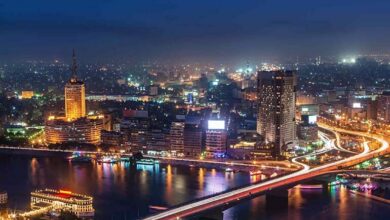Egypt is not Tunisia. In Egypt, a middle-aged man tried to light himself on fire in front of the parliament building. In Egypt, sectarian tensions are exploding after the recent attack on a church in Alexandria and the shooting of Coptic train passengers by a policeman in Upper Egypt. In Egypt, there exists a fraudulent parliament and an impending presidential election whose consequences for Egyptian politics are all but certain. In addition to all these problems, Egypt is plagued by unemployment, corruption, injustice, and poverty. No, Egypt is not Tunisia. But the real question is what the future carries for this country.
Who among us is not concerned about the future? Who does not expect the worst after Alexandria blast? Indeed, this tragedy united Egyptians more than it divided them, but will this be enough? Or will the regime just resort to appeals for calm and deny that sectarianism is in fact a problem, as if there were nothing more to be learned from the attacks? As is denying certain truths will obviate the need to deal with their consequences.
These fears dominate us as we follow what happens in Tunisia, Algeria, Jordan, Palestine, and even Saudi Arabia, where unemployment protests have spread and, in the Tunisian case, a ruling regime has been brought down. Moments before the government fell, a Tunisian journalist said on satellite TV that despite the gravity of the situation and the loss of life, the protests had to potential to save Tunisia and mark the birth of democracy. A few moments later, the same satellite channel reported the departure of Tunisian president Zine Al-Abidine Ben Ali. It's startling how things begin and how they end.
The events in Tunisia started with an act of self-immolation and grew into a number of social protests around the country, which quickly turned political as demonstrators refused to accept a renewal of the president’s term. Now, people across the region are taking to the streets to demand their rights, except Egyptians. We find ourselves at a critical juncture, afraid of turning against each other. We’re all concerned that sectarian divisions will be used to obliterate us. This type of animosity grows out of a lack of awareness; most Egyptian youth are not as educated as their Tunisian counterparts. And the Egyptian regime is particular cunning–it has learned to direct public anger away from the state and into other avenues.
In the past, the Egyptian regime has chosen sectarianism over revolution. Sadat paved the way for the rise of Islamists in order to eliminate the Left, whom he worried would threaten his hold on power. Former President Anwar al-Sadat chose to put Egypt at risk instead of risking his own political position. He combated the Left with the Islamists, the Muslim Brotherhood with the Salafis and, finally, the Copts with both. All these maneuvers saved Sadat’s regime at certain moments, but planted the seeds of sectarianism and deepened the divides between religious communities.
And what about the security apparatus' role in all this? In dealing with sectarian incidents, security forces have been more intent on protecting the regime than Egyptian society. They have protected Salafi demonstrations against Copts and against the Church, which drew large numbers of people every Friday in Alexandria, until the morning of the attack. And the state-controlled media, by accusing Copts of seeking foreign support to strengthen their domestic standing, has played helped fuel antagonistic feelings towards Egypt’s largest minority group.
The Egyptian regime has used sectarianism to avert a political unrest. But will sectarianism save the regime from revolution? Or does it threaten the regime as well, not just society?
Translated from the Arabic Edition.




